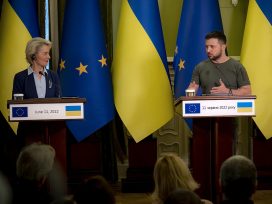
As the shock of war gives way to reflection, Ukrainian public discourse has turned to questions of the past, present and future: When did Russia’s war on Ukraine start? What is it doing to society? And how will it end?

As the shock of war gives way to reflection, Ukrainian public discourse has turned to questions of the past, present and future: When did Russia’s war on Ukraine start? What is it doing to society? And how will it end?
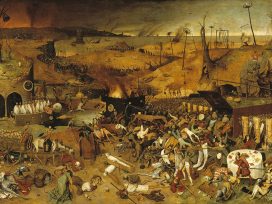
War becomes the twin of communication: the development of media has not only changed how warfare is reported, but also how it’s fought. The working rule of the warriors is to spread strategic information and disinformation at every instant. And media workers are culpable too, for abusing the genre of breaking news reporting to magnetise audiences and advertisers, doing it at a great symbolic cost.

We moved office last week. We’ve had to contend with literal tons of physical memory from Eurozine’s almost forty-year history, and are yet to unpack it. It can either be a new beginning or a hibernation plan.

Celebrating the start of LGBTQIA+ Pride 2022: in Brazil trans activists rearticulate language and identity, taking the political campaign trail to greater visibility, recognition and a sense of belonging, helping save lives through collective action and knowing disobedience.
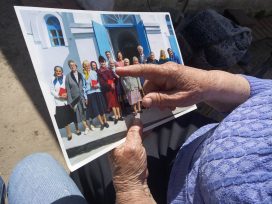
Afina, Usein, Maria, Jasim – a Greek Roumean, a Crimean Tatar, a Swede and a Turkish-Meskhetian, all from Ukraine, all living on the edge – when the attack on nationals, labelled minorities, is life-threatening, calling out the names of those who are in danger recognizes their plight and diversity.
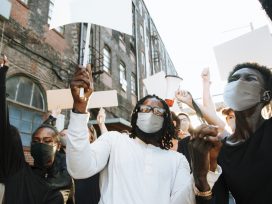
The perfect storm of viral politics and the challenge of Big Tech test the faith in the liberalism–fascism dichotomy. Fascism becomes endemic, playing on the premises of liberalism, pitting them against its democratic ideals.

Disagreements over military aid to Ukraine threatened Bulgaria’s ruling coalition and were resolved thanks only to a compromise mediated by Volodymyr Zelensky. But pro-neutrality stances still find support across the political spectrum. Bulgaria’s balancing act between Russia and the West follows an established pattern.

Penal colonies and mysterious deaths of political opponents are still part of Russia’s political machinations today. Remembrance and documentation are criminalized, as the case of Memorial shows. And yet, there is a lot to explore and memorialize – for instance, the thousands of people slaughtered in Sandarmokh forest, Karelia, during Stalin’s Great Terror.

Glass breaking and balalaikas: Hollywood has traditionally portrayed the Tsarist and Soviet Empires as ethnically homogenous, culturally uniform and exclusively Russian speaking. This unjust image lives on and reaffirms the imperial narrative behind the invasion of Ukraine.
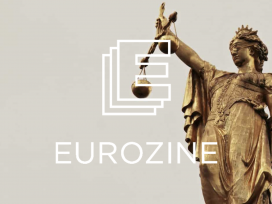
Excruciating pain and paralytic numbness alternate in an inhuman rhythm. As Ukrainian artists struggle to overcome exhausted tropes of warfare and martyrdom, others consider what it will take to bring the perpetrators to justice. But moral reckoning is an even more complicated business.

The many names of Chernivtsi in Ukraine attest to the tumultuous military and political history of Europe, borne out in cultural and linguistic competition, conflict and compromise in literature, music and art. What traces of this past can still be seen in the city today?

Initial COVID-19 lockdowns seemed like a gift to nature. But less traffic and fewer industrial emissions soon turned into increased car use from social distancing and new levels of plastic consumption. Why are pre-pandemic values, encouraging lower consumption, at odds with staying healthy?
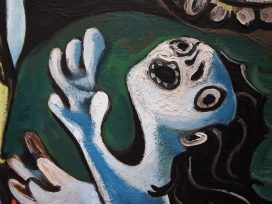
The use of rape as a weapon of war is not new. The army that terrorizes civilians and targets women today in Ukraine is the same one that has never had to reckon with its own horrific World War II crimes.
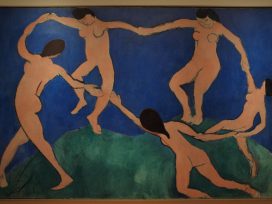
The performing arts suffered a crisis of identity during initial pandemic lockdowns. Enclosure replaced gestures of intimacy. Nomadic artistic practice, no longer able to physically engage with linguistic, geographic and social borders, faced new ‘territory’. Itinerant artists, used to constant travel, started thinking more locally.

At times a safe-haven, at others prison-like: when COVID-19 lockdowns restricted entire lives to the home all around the globe, perceptions of everyday space changed. But do our relationships with enclosed living, especially during quarantine, reflect pre-existing meanings of intimacy ascribed by psychologists and artists to the home?
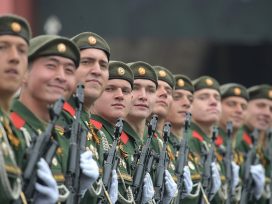
Lacking a positive national identity, Russians continue to be governed by a dangerous imperial mindset that betrays both subservience and aggression. Putin has cynically built on this dubious foundation.